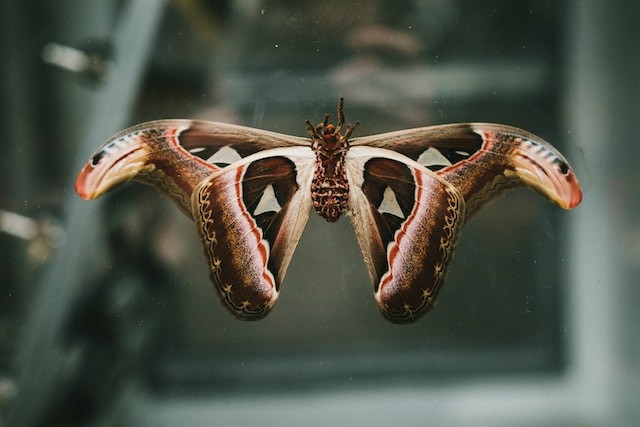Bees and butterflies are often praised for their role as pollinators, transferring pollen from one flower to another and enabling plant reproduction and diversity.
A recent study from the University of Sussex suggests that moths might be more efficient pollinators than these day-flying insects, especially at night.
Pollination rates of day and night insects

The study, published in the journal Biology Letters, involved setting up trail cameras to record the visits of insects to bramble flowers in a park in Sussex, UK.
The researchers also placed mesh bags over some of the flowers to compare their pollination rates.
One group of flowers was covered for 24 hours, another group was covered only during the day, and a third group was covered only at night.
The researchers found that 83% of all flower visits happened during the day, mostly by bees and hoverflies.
They also found that the pollination rates were higher at night when moths were almost the only visitors. This meant that moths were more efficient at transferring pollen than day-flying insects.
Moths are more efficient pollinators than bees and butterflies
The researchers speculated that moths are more efficient pollinators than bees and butterflies for several reasons.
One is that moths have a shorter time window to pollinate at night, so they have to be faster and more effective than daytime insects.
Another is that moths have longer tongues than most bees and butterflies, which allows them to reach deeper into the flowers and collect more pollen.
A third is that moths have hairy bodies that can carry more pollen than smooth-bodied insects.
The researchers also noted that moths are more diverse and widespread than bees and butterflies, with over 2,500 species in the UK alone.
They can also adapt to different habitats and climates, and visit a variety of flowers. This makes them important pollinators for many plants, especially those that bloom at night or have pale or fragrant flowers.
Moths help maintain plant diversity and crop production
The researchers estimated that moths pollinate about 75% of the plant species in the UK, including many wildflowers and crops.
They also noted that moths are important for maintaining plant diversity and genetic variation, as they can transport pollen over long distances and between different habitats.
Moths can also pollinate plants that are not visited by other insects, such as those that bloom at night or have pale or fragrant flowers.
Some examples of crops that benefit from moth pollination are alfalfa, clover, oilseed rape, peas, beans, apples, pears, plums, cherries, and strawberries.
These insects can also help control pests by feeding on their larvae or eggs. For instance, some moth species can reduce the damage caused by aphids or caterpillars on crops3.
The study highlights the underestimated role of moths as nocturnal pollinators, which may have implications for conservation and agriculture.
The researchers suggested that more attention should be paid to protecting and restoring moth habitats, such as hedgerows, woodlands and grasslands.
They also recommended that more research should be done on how moths interact with other pollinators and how they respond to environmental changes.
Related Article: Moth to a Flame: Why Do Insects Congregate Around Artificial Lights?
© 2025 NatureWorldNews.com All rights reserved. Do not reproduce without permission.





